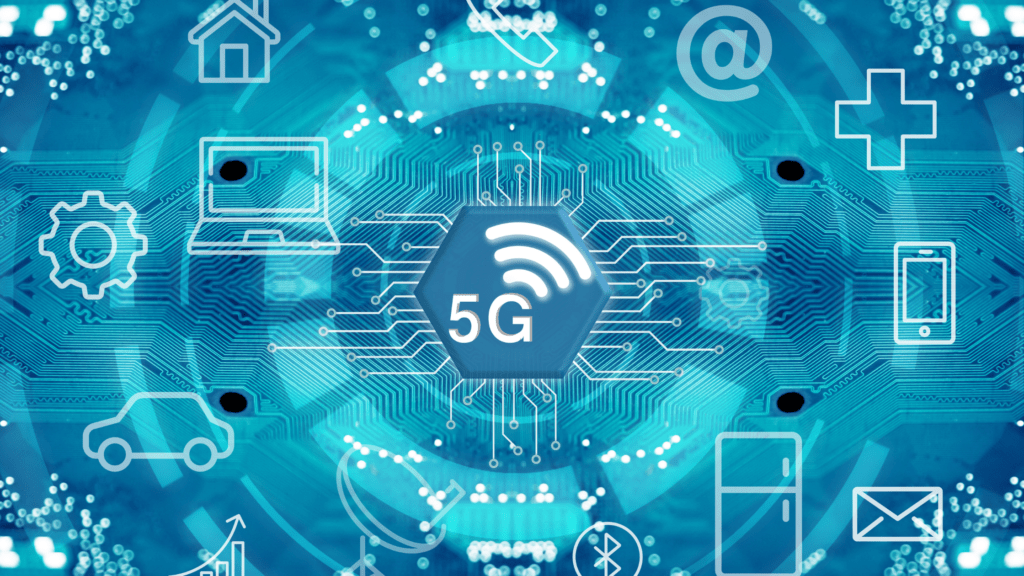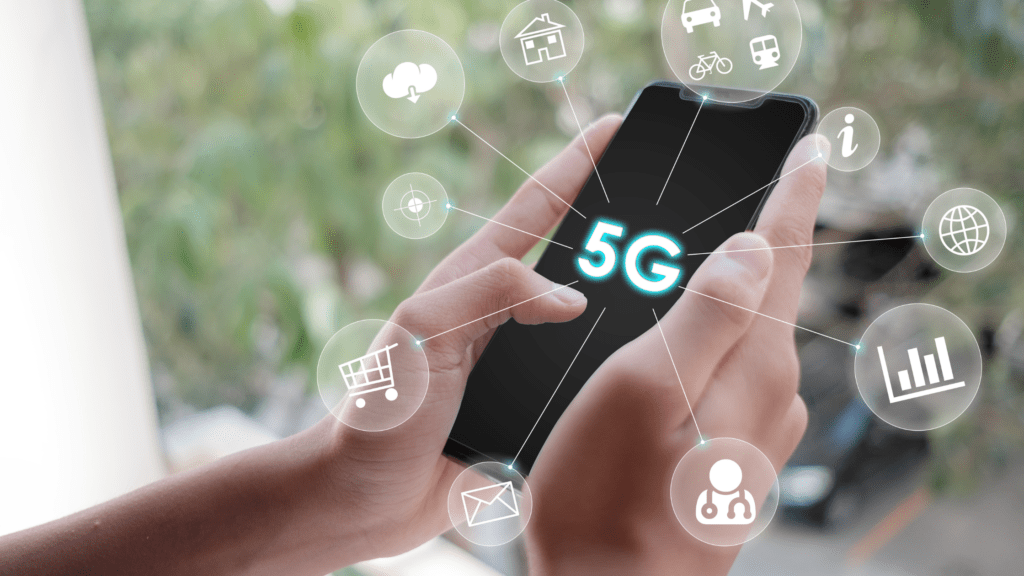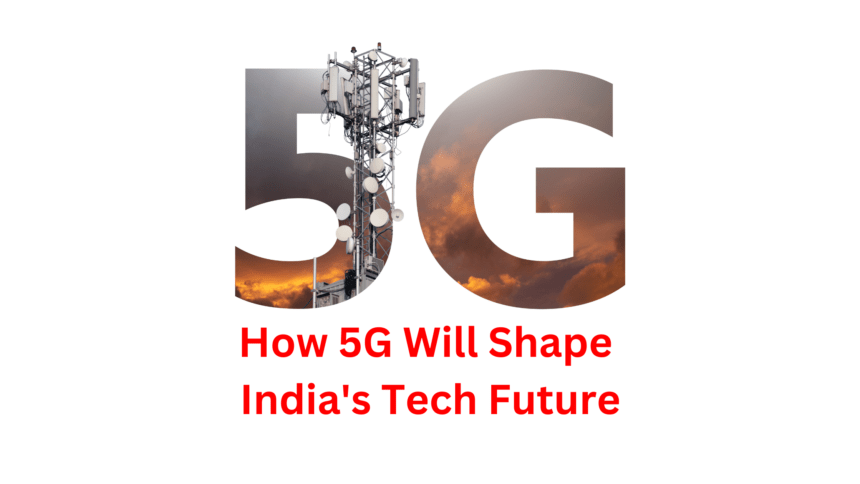Introduction
The dawn of 5G technology marks a significant milestone in India’s tech evolution. As the world moves towards hyper-connectivity, 5G stands at the forefront, promising to revolutionize industries, enhance digital experiences, and propel economic growth. This exploration delves into how 5G in India is poised to shape the future tech landscape.
The Advent of 5G in India
Historical Context of Telecom Evolution
India’s telecom journey began with the introduction of basic telephony services in the early 20th century. From landlines to the first mobile phones, each technological leap has brought greater connectivity to millions. The transition from 2G to 4G over the past few decades has been rapid, each generation bringing exponential improvements in speed, connectivity, and service quality. Now, the arrival of 5G in India represents a quantum leap in technological advancement, setting the stage for unprecedented levels of connectivity and innovation.
Key Milestones in 5G Development
The rollout of 5G in India has been marked by significant milestones, including spectrum auctions, pilot projects, and collaborations between the government and private sectors. The establishment of 5G testbeds and successful trials by major telecom operators such as Reliance Jio, Bharti Airtel, and Vodafone Idea have paved the way for nationwide deployment. These efforts underscore the commitment to making 5G in India a reality, ensuring the country does not lag in the global race for technological supremacy.
Infrastructure and Deployment Challenges
Building the 5G Network
Developing a robust infrastructure for 5G in India requires extensive investment in fiber optics, small cells, and spectrum. The densification of network towers and the integration of advanced technologies like Massive MIMO (Multiple Input, Multiple Output) are crucial. These components are necessary to support the high-speed, low-latency connections that 5G promises. The task of building this network is monumental, involving not just the urban centers but also reaching out to the vast rural hinterlands.
Government Policies and Support
Government initiatives such as the National Digital Communications Policy, 2018, and strategic spectrum allocations play a pivotal role in accelerating the deployment of 5G in India. Public-private partnerships are also vital to surmount financial and logistical challenges. The government’s proactive stance, through policies and subsidies, aims to foster a conducive environment for the rollout of 5G in India. This support is crucial for achieving the ambitious targets set for the technology’s adoption.
Technological Hurdles
The adoption of 5G faces technological obstacles, including the need for advanced hardware, software upgrades, and addressing concerns related to signal interference and energy consumption. Overcoming these hurdles requires a coordinated effort between telecom operators, technology providers, and regulatory bodies. Innovations in hardware design, energy-efficient technologies, and enhanced network management protocols are necessary to address these challenges effectively.

Economic Implications of 5G
Boost to Digital Economy
5G is expected to be a catalyst for India’s digital economy, fostering innovations across sectors such as fintech, e-commerce, and entertainment. The increased connectivity will drive digital transactions and online businesses, contributing significantly to GDP growth. With 5G, India can leverage its demographic dividend, enabling a new generation of tech-savvy entrepreneurs and consumers to thrive in the digital marketplace.
Job Creation and Skill Development
The 5G revolution will create numerous job opportunities, from network engineers to app developers. Skill development programs will be essential to equip the workforce with the necessary expertise. Training initiatives focusing on emerging technologies, such as IoT, AI, and cybersecurity, will be crucial in preparing the workforce for the demands of the 5G era.
Impact on Various Sectors
Sectors like agriculture, healthcare, and education will experience significant transformations due to 5G. Enhanced connectivity and smart technologies will streamline operations and enhance service delivery. For example, precision agriculture, remote healthcare, and digital classrooms will become more accessible, leading to increased efficiency and productivity across these critical sectors.
Enhancing Connectivity and Communication
High-Speed Internet Access
5G in India promises ultra-fast internet speeds, enabling seamless streaming, quick downloads, and real-time communications. This leap in connectivity will transform user experiences across devices, making activities like online gaming, video conferencing, and virtual reality more immersive and efficient.
Rural Connectivity and Bridging the Digital Divide
One of the most profound impacts of 5G will be on rural connectivity. Bridging the digital divide, 5G will provide remote areas with access to high-speed internet, promoting inclusivity and development. This connectivity will empower rural communities with access to education, healthcare, and economic opportunities that were previously out of reach.
Transformation in Healthcare
Telemedicine and Remote Surgery
5G will revolutionize healthcare with advancements in telemedicine and remote surgery. High-speed, low-latency networks will enable real-time consultations and precise remote surgical procedures, making quality healthcare accessible to even the most remote locations.
Enhanced Health Monitoring Systems
Wearable devices and IoT-enabled health monitoring systems will become more effective with 5G, allowing continuous, real-time health tracking and prompt medical responses. This advancement will lead to better disease management, preventive care, and overall improved health outcomes.
Revolutionizing Education
E-Learning and Virtual Classrooms
Education will undergo a digital metamorphosis with e-learning platforms and virtual classrooms powered by 5G. This technology will facilitate interactive, immersive learning experiences, making education more accessible and engaging for students across the country.
Access to Information and Resources
Students will benefit from immediate access to vast information repositories and educational resources, enhancing research capabilities and knowledge dissemination. 5G will democratize education, providing equal opportunities for learning to everyone, regardless of their geographic location.
Industrial and Manufacturing Advances
Smart Factories and Automation
The manufacturing sector in India will witness the rise of smart factories, where automation and AI-driven processes streamline production, reduce errors, and increase efficiency. 5G will enable real-time monitoring and management of manufacturing processes, leading to higher productivity and innovation.
Supply Chain Optimization
5G will enhance supply chain management with real-time tracking, predictive analytics, and automated logistics, ensuring smoother and more reliable operations. The integration of 5G technology will lead to optimized inventory management, reduced wastage, and improved overall efficiency in the supply chain.
Smart Cities and Urban Development
Internet of Things (IoT) Integration
Smart cities in India will thrive on 5G-enabled IoT networks, where interconnected devices improve urban living through smarter utilities, waste management, and energy efficiency. 5G will enable real-time data collection and analysis, leading to better decision-making and resource management in urban areas.
Improved Public Services
Public services such as transportation, healthcare, and security will benefit from enhanced connectivity provided by 5G. This will result in more efficient service delivery, improved citizen experiences, and better overall quality of life in urban centers.
Transportation and Mobility

Autonomous Vehicles
The automotive industry in India will advance with 5G, enabling the development and deployment of autonomous vehicles. These vehicles will communicate seamlessly with each other and traffic management systems, enhancing road safety and efficiency.
Real-Time Traffic Management
5G will facilitate real-time traffic monitoring and management, reducing congestion and improving road safety. Smart traffic lights and connected infrastructure will optimize urban mobility, making commuting more efficient and less stressful for residents.
Security and Privacy Concerns
Cybersecurity Measures
As 5G networks proliferate, robust cybersecurity measures will be paramount to protect against sophisticated cyber threats and ensure the integrity of critical infrastructure. 5G will require advanced security protocols and continuous monitoring to safeguard against potential vulnerabilities.
Data Privacy Regulations
The handling of vast amounts of data generated by 5G will necessitate stringent data privacy regulations to safeguard personal information and maintain public trust. Regulatory frameworks must evolve to address the challenges posed by increased data collection and sharing.
Role of Telecom Companies
Major Players in the 5G Rollout
Telecom giants like Reliance Jio, Bharti Airtel, and Vodafone Idea are spearheading the rollout of 5G in India. Their investments and innovations are crucial to the network’s success, ensuring that 5G meets global standards and expectations.
Innovations and Partnerships
Collaborations between telecom companies, tech firms, and startups are driving innovations in 5G applications, ranging from smart homes to industrial automation. These partnerships are essential for creating a vibrant ecosystem that supports the widespread adoption and utilization of 5G in India.
Consumer Impact
Enhanced Mobile Experience
Consumers in India will enjoy a significantly enhanced mobile experience with faster download speeds, improved video quality, and new augmented reality (AR) and virtual reality (VR) applications. 5G will transform how people interact with their devices, making everyday tasks more efficient and enjoyable.
New Applications and Services
5G will usher in a wave of new applications and services, including immersive gaming, smart home devices, and advanced mobile banking solutions. These innovations will revolutionize daily life, offering convenience, efficiency, and new ways to engage with technology.
Future Prospects and Trends
Evolution Beyond 5G
The journey beyond 5G includes exploring 6G and other futuristic technologies. Research and development will continue to push the boundaries of connectivity and innovation, ensuring that India remains at the forefront of global technological advancements.
Anticipated Technological Innovations
Anticipated innovations include advancements in AI, machine learning, and quantum computing, all of which will be accelerated by the ubiquitous connectivity offered by 5G. These technologies will drive further transformation across industries, creating new opportunities and challenges.

Conclusion
The advent of 5G in India heralds a new era of technological innovation and economic growth. As the country embraces this transformative technology, it stands on the cusp of a digital revolution that will reshape industries, enhance connectivity, and propel India into a new age of prosperity and development. 5G is not just about faster internet speeds; it is about creating a future where technology and human potential are seamlessly integrated, driving progress and improving lives across the nation.
Reference Books about 5G Technology
The Future Home in the 5G Era: Next Generation Strategies for Hyper-connected Living
5G New Radio in Bullets
The 5G Network Architecture: A Guide That Covers Everything About The 5G Technology
For more content follow Humstory













